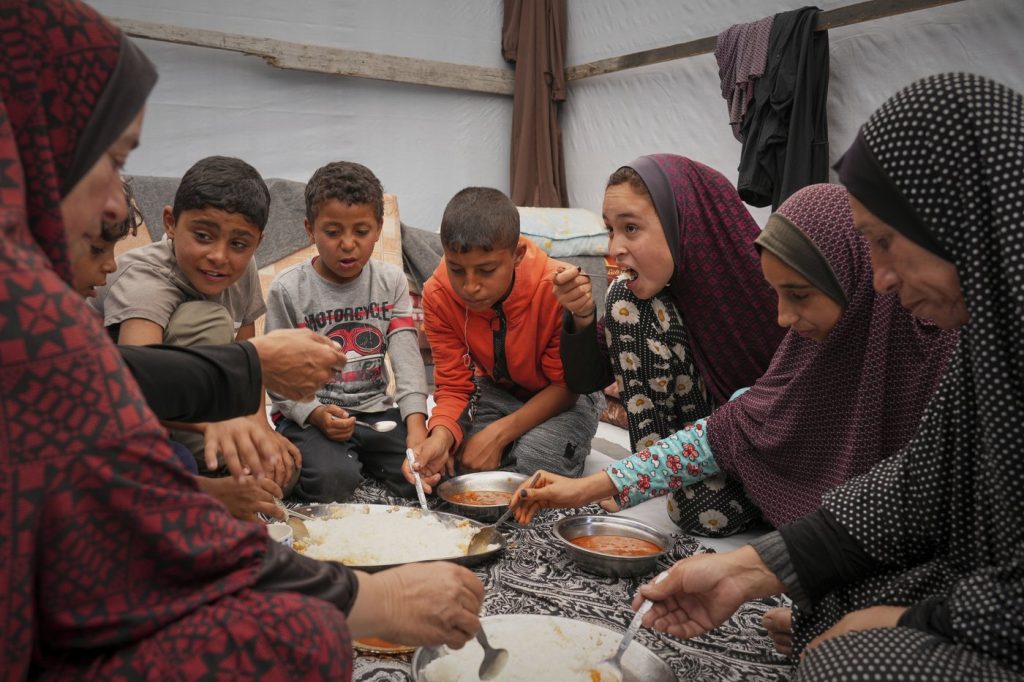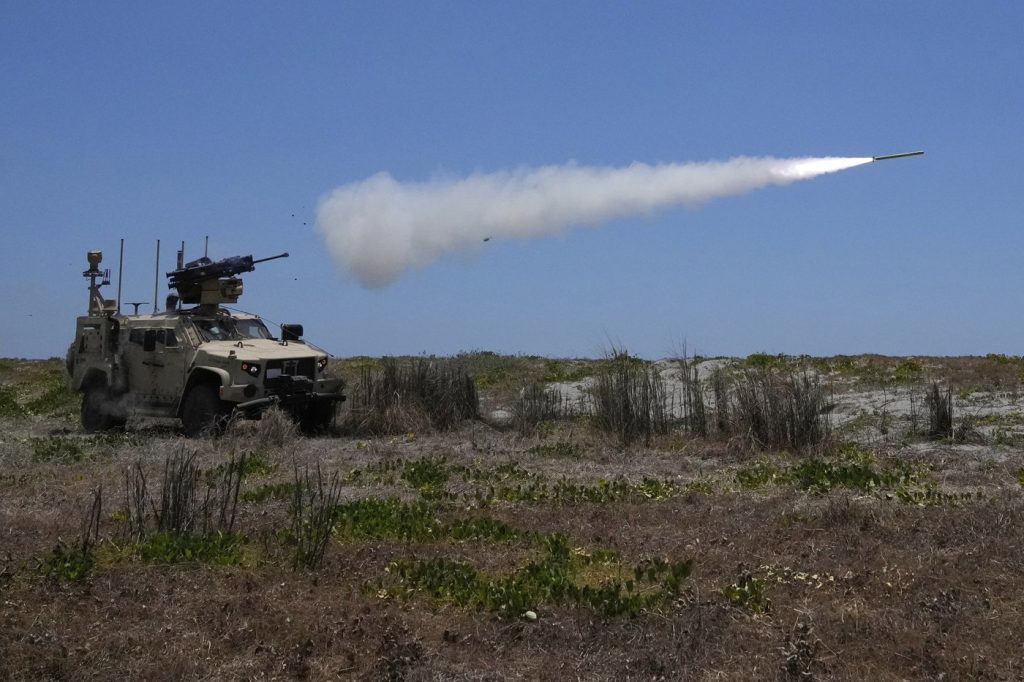KHAN YOUNIS, Gaza Strip (AP) — For nearly 60 days, the Gaza Strip has been under a blockade imposed by Israel, which has prevented the entry of essential items such as food, fuel, and medicine. Aid organizations are running critically low on resources, leaving markets nearly bare and Palestinian families struggling to provide for their children. Within a sprawling tent camp outside Khan Younis, Mariam al-Najjar and her family have resorted to cooking meager meals consisting primarily of canned vegetables.
Mariam al-Najjar shared that her family's Friday meal included just four cans of peas and carrots, boiled over a wood fire, accompanied by rice. Traditionally, Fridays are significant for large family gatherings and richer meals, but now, only the basics such as peas and rice are available. With around 2.3 million Palestinians in Gaza primarily relying on canned goods like vegetables, rice, pasta, and lentils, access to meat, milk, cheese, and even basic vegetables has become nearly nonexistent. The price of remaining items in local markets has skyrocketed, making them unaffordable for most families.
The blockade was first imposed on March 2, 2025, followed by the resumption of military actions on March 18 after a two-month ceasefire. This blockade is viewed by rights groups as a "starvation tactic," endangering the lives of the entire population and potentially amounting to a war crime. Mariam recounts that, as food options dwindled, her family moved from meat to canned sardines, which have also run out. The United Nations previously supplied cartons of milk, but that has ceased, leading Mariam to frequently give her children bread dunked in tea to stave off hunger.
Mariam’s mother-in-law, Sumaya al-Najjar, expressed her fears that her grandchildren may die of hunger, citing her own health struggles, including cancer, which have further complicated their dire situation. Doctors in Khan Younis are reporting a significant rise in malnutrition cases among children, with Dr. Ayman Abu Teir stating that specialized milk for young children has run out. The UN identified 3,700 children suffering from acute malnutrition in March, marking an 80% increase from February.
In the markets of Khan Younis, the situation is equally grim. Most grocery stalls are empty, with small piles of limited vegetables such as tomatoes, cucumbers, and onions available at exorbitant prices. For context, tomatoes are priced at around 50 shekels per kilo, almost $14, in stark contrast to less than a dollar before the conflict escalated. Khalil al-Faqawi, a local resident, expressed despair over his inability to provide for his nine family members, lamenting that while they have lentils, the future remains uncertain.
The agricultural landscape has also been drastically affected, as Israeli military operations have destroyed much of Gaza's farmland and greenhouses. Farmers like Mahmoud al-Shaer noted a dramatic decrease in yield, producing just 150 kilos of tomatoes per week compared to the 600 kilos prior to the conflict, projecting that in a very short time, such produce will be completely unavailable.
As the humanitarian crisis intensifies, charity kitchen initiatives are also struggling to keep up with demand. The Rafah Charity Kitchen in Khan Younis has seen children lining up for lentils, the only food alternative as conventional food programs have ceased due to the blockade. The World Food Program has reported that its last food supplies will run out within days, putting immense pressure on these community kitchens, which can only serve basic meals of lentils or pasta.
Overall, the blockade has intensified the humanitarian crisis in Gaza, significantly impacting food availability and nutritional health among its populace. Families are caught in a painful struggle for survival while international organizations scramble to respond to escalating needs in one of the world’s most densely populated areas.












